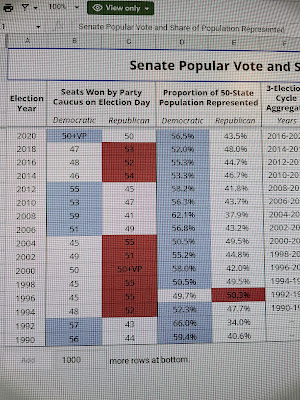In 2022, celebration of the Fourth of July was difficult.
7 people went to a town parade in Highland Park, Illinois, and were shot dead by a sniper with an assault rifle.
35 or so others were shot but survived. Hundreds of others escaped with psychological wounds only.
The rest of us tried to carry on, but how do you enjoy a barbecue or parade or fireworks while your cell phone and television are reporting on the manhunt in Illinois for a killer still on the loose?
Between updates on the parade massacre, we watched newly-released video of the murder of Jayland Walker, a Black man being chased by police in Akron, Ohio, for having a broken taillight.
To have a happy Fourth this year, you had to be deaf, dumb, and blind.
Also you had to avoid thinking about the Supreme Court decision overturning Roe v. Wade. You had to block out the latest revelations that ex-president Trump had wrestled with his Secret Service officers in an SUV, demanding to go to the Capitol building and take part in the overthrow of the government.
It wasn't your average lazy, beer-drinking day of illegal fireworks and patriotic platitudes.
But "Still I Rise," as Maya Angelou would say.
On this desperate July 4th, I'm celebrating that Trump is no longer president. His plot to gain a second term by selling us a bunch of lies failed.
I'm celebrating that the House Select Committee to Investigate the January 6 Attack has been doing its work for a year now, and the DOJ may even indict Trump for a few of his many crimes. That's worth cheering about.
I'm rejoicing that we still have a democracy of sorts. It's not a direct democracy (where the popular vote determines the president), but at least our representatives on Jan. 6, 2021, didn't quite dare to overthrow the election results and ram another four years of Donald down our throats.
We're only four years away from celebrating that the Constitution has lasted 250 years. The Civil War 1861-1865 was not successful in splitting this country into two halves, and the first attempted coup in our history failed in 2021.The flimsy scheme of replacing a king, lords, and "commoners" with a president, congress, and judiciary has held up, more or less. That's worth celebrating, even when the Supreme Court is packed with three Trump appointees and seems bent on overturning all decisions since Brown v. Board of Education, which ended racial segregation in public schools.
Within the guidelines of the Constitution, it's perfectly legal to add several justices to the Supreme Court. All we need is a Congress and president who will make that happen.
On this July 4th, I'm celebrating that most of us still have the right to vote and have our votes counted fairly. We don't live in a nation like China or Russia, where elections are a total sham.
It's true that corporations and wealthy men in the USA try to buy our votes with huge financial donations, unleashing television ads that manipulate our fears and our desires.
It's true that Republicans control most of our state legislatures and are trying to keep poor people, minorities, and working people from voting. They restrict mail-in voting, limit polling locations, and fight early voting opportunities. They hope that long lines in bad weather will reduce the number of voters. In Georgia they made it illegal to give water bottles to people waiting hours to cast their votes. They use gerrymandering to create districts where Dem voters are outnumbered by GOP voters.
But as of mid-2022, votes still count.
1) We each need to vote... all of us.
2) We also need to defend the voting rights of others as we approach November 8, 2022.
3) We need to work for local, state, and national candidates who reflect our values.
4) We need to vote out Republicans who are still claiming that Trump won the 2020 election.
5) We need to throw out US Senators who won't vote to ban assault rifles--who value guns more than children's lives. We need to elect Senators who will eliminate the filibuster and pass legislation to restore our right to make our own decision about an unplanned pregnancy.
Many Black people consider July 4th to be a holiday for White folks only. Their African ancestors were captured, transported, and held in slavery while White Americans celebrated the day their forefathers had declared independence from Great Britain and started fighting for freedom. For nearly one hundred years, Independence Day was a hypocritical mess.
In some ways, July 4 still is a day that highlights unequal levels of rights and freedoms based on race. Kyle J. Howard issued a six-part tweet today pointing out that this year, the historical split-vision still exists. Most whites are celebrating freedom while Blacks are enraged over the police shooting of Jayland Walker in Akron, Ohio, after a mere traffic stop. Jayland was denied the most basic of freedoms--life and liberty--after being chased for a broken tail light.
For the record, I'm not celebrating America's independence from George III today.
I'm rejoicing that King Donald is no longer our boss, and he may go to jail. I'm grateful that we still have a democracy and that votes here still count.
So I bought some decorations and began making cupcakes... John and I are having a party here with friends.
























 Here's a historical note to ponder: there were no confirmation hearings for the first 127 years of the Supreme Court. White men were just nominated and debated a little in the Senate; then the vote took place on whether to confirm them.
Here's a historical note to ponder: there were no confirmation hearings for the first 127 years of the Supreme Court. White men were just nominated and debated a little in the Senate; then the vote took place on whether to confirm them.